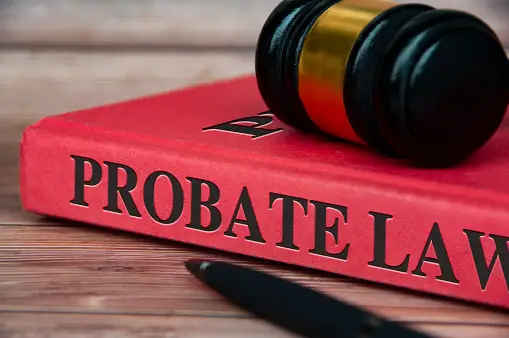Colored with scrolling
Try scrolling the rest of the page to see this option in action.
Try scrolling the rest of the page to see this option in action.

For executors, navigating the Canadian probate process is essential, especially when handling and distributing a decedent’s inheritance. Probate serves as the formal recognition of a will’s validity by the courts, empowering the executor to oversee the estate’s assets, which often include significant real estate holdings.
Even though the probate process can be difficult at times, it is an essential step in making sure that the deceased’s assets are distributed to the appropriate people and that their intentions are honoured. Let’s check the details.
Have you ever wondered what exactly is probate when it comes to wills and estates reports in Canada? At its core, probate is a legal process that validates a will and authorizes the executor to distribute the deceased’s estate. But why is it necessary, and what does it entail for those involved?
In Canada, the probate process legally establishes the authenticity of a will following a person’s death. Should there be no will, a court-designated individual is tasked with estate administration. This step is crucial as it grants the executor legal authority to manage the assets of the deceased, including real estate. For real estate, probate ensures that the property can be legally transferred to the new owners according to the will or the law if there is no will. It’s a reassurance to buyers and sellers alike that the transaction stands on solid legal ground.
Probate starts after a person dies. It’s the procedure where an executor applies to get legal permission to carry out the deceased’s wishes as written in their will. If there’s no will, they apply for a similar authority to divide the person’s assets following provincial laws.
The time it takes for a will to go through probate in Canada varies. After submitting the probate application, it might take from several weeks to a few months to get approved. If there are issues or disagreements, it could take longer — on average, three months.
The province in which the deceased person resided at the time of their death is where the probate procedure is held. The person named as executor in the will is responsible for managing the probate process. Without a will, the court assigns an administrator to do this job.
So, how does probate function in the Canadian legal system? The process begins with the executor, a legal professional, who applies to the court. They must apply to the court to validate the will and be formally recognized as the legitimate administrator of the estate, which includes property. This step is crucial, without it, the executor has no authority to handle real estate transactions, which may delay the sale or transfer of property and potentially impact its market value.
What steps must one take to navigate the probate process? From filing the right documents to appearing in probate court, the executor must follow a path. The probate process is a series of methodical steps requiring attention to detail, especially with real estate assets.
Here’s a simplified version of the probate process:
Being an executor is a big task, involving everything from funeral arrangements to paying debts and going through probate.
Ever heard of a grant of probate? This document is the executor’s green light to proceed with estate administration. The grant of probate is a legal document that authorizes the executor to proceed with the administration of a deceased person’s estate, providing the necessary authority for tasks such as managing, selling, or transferring real estate assets as outlined in the will.
To secure a grant of probate, executors need to compile a list of documents and details, including those related to real estate. For executors, this grant is the legal key to managing, selling, or transferring real estate according to the will’s directives.
Probate fees are calculated on the estate’s total value, which can significantly increase with high-value real estate. These fees, while a small percentage, can amount to a considerable sum in such cases, affecting the estate’s liquidity. Executors must plan how to handle these fees, which may include strategic decisions about selling or refinancing real estate assets.
To avoid the often lengthy and costly probate process, particularly for real estate, some opt for joint tenancy in a will with right of survivorship. This way, property can pass directly to the surviving owner. This strategy does have some drawbacks, though, so it should be carefully evaluated in the context of estate planning as a whole.
Executors handling the distribution of real estate assets need to be mindful of the possibility of disagreements, such as a beneficiary challenging a will, which can cause the probate process to drag out considerably.
Adequate preparation for probate, especially when it involves real estate, cannot be overstated. Executors need to be conversant with the legal requirements, real estate valuations, and market conditions. With this knowledge, they can make informed decisions to navigate the probate process efficiently and honour the decedent’s wishes regarding their property.
Understanding the nuances of probate court in Canada, especially in relation to real estate, is essential for executors. It ensures that the estate is managed and distributed correctly, with real estate assets given particular care due to their significant value and complexity. By adequately preparing and seeking the right guidance, executors can navigate through probate with confidence, ensuring a smooth transition of the decedent’s property to their rightful heirs.
Back to blogs